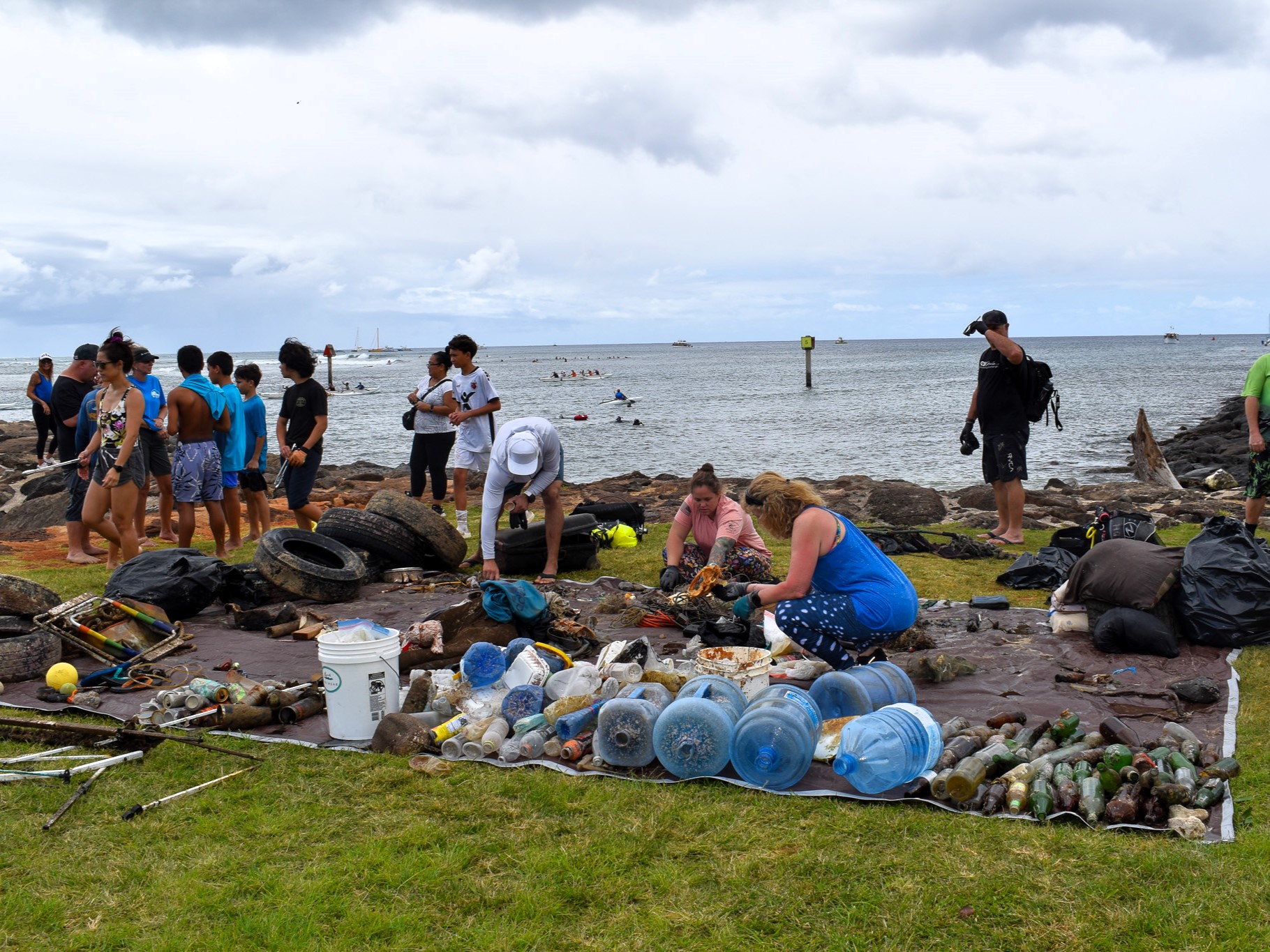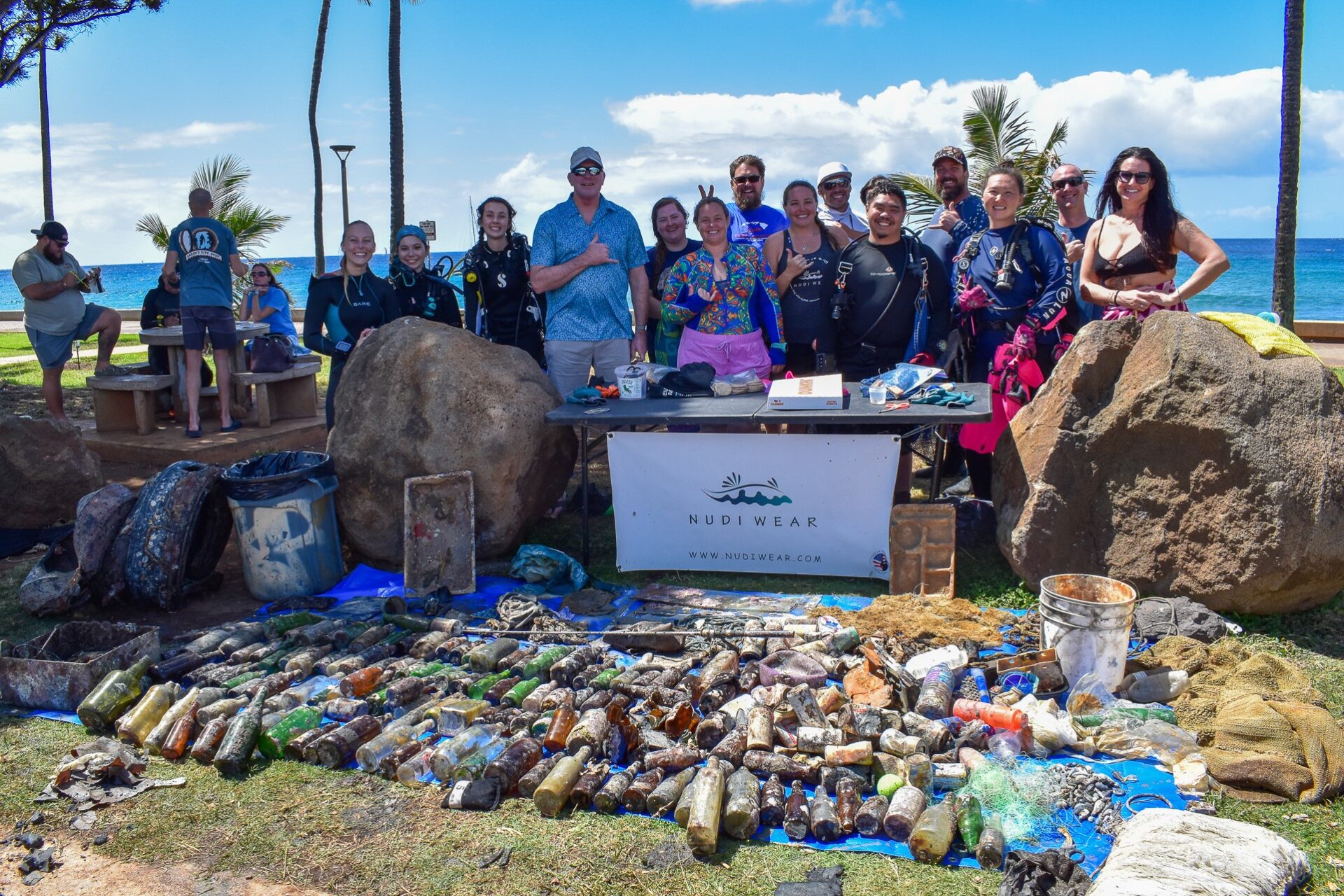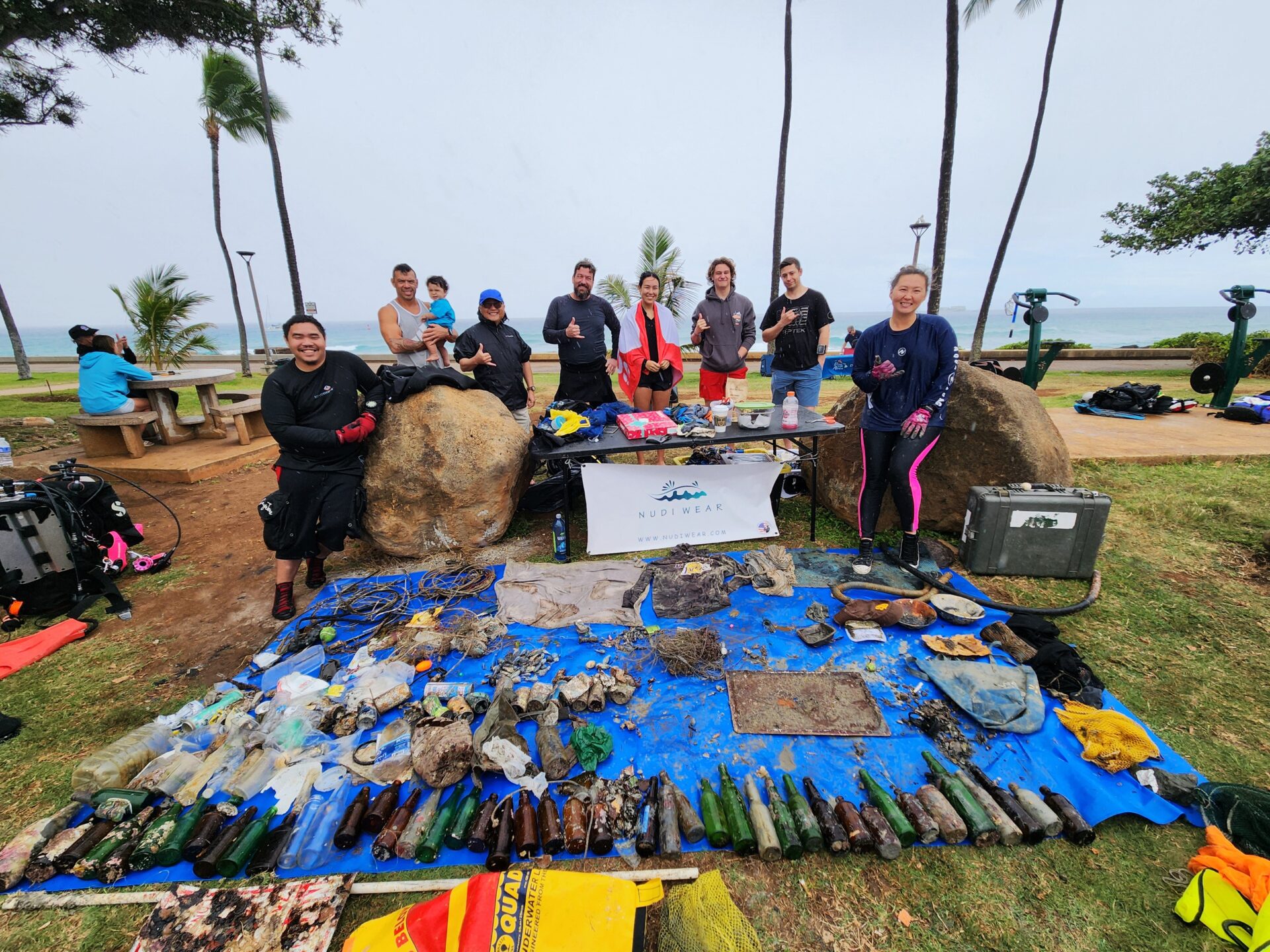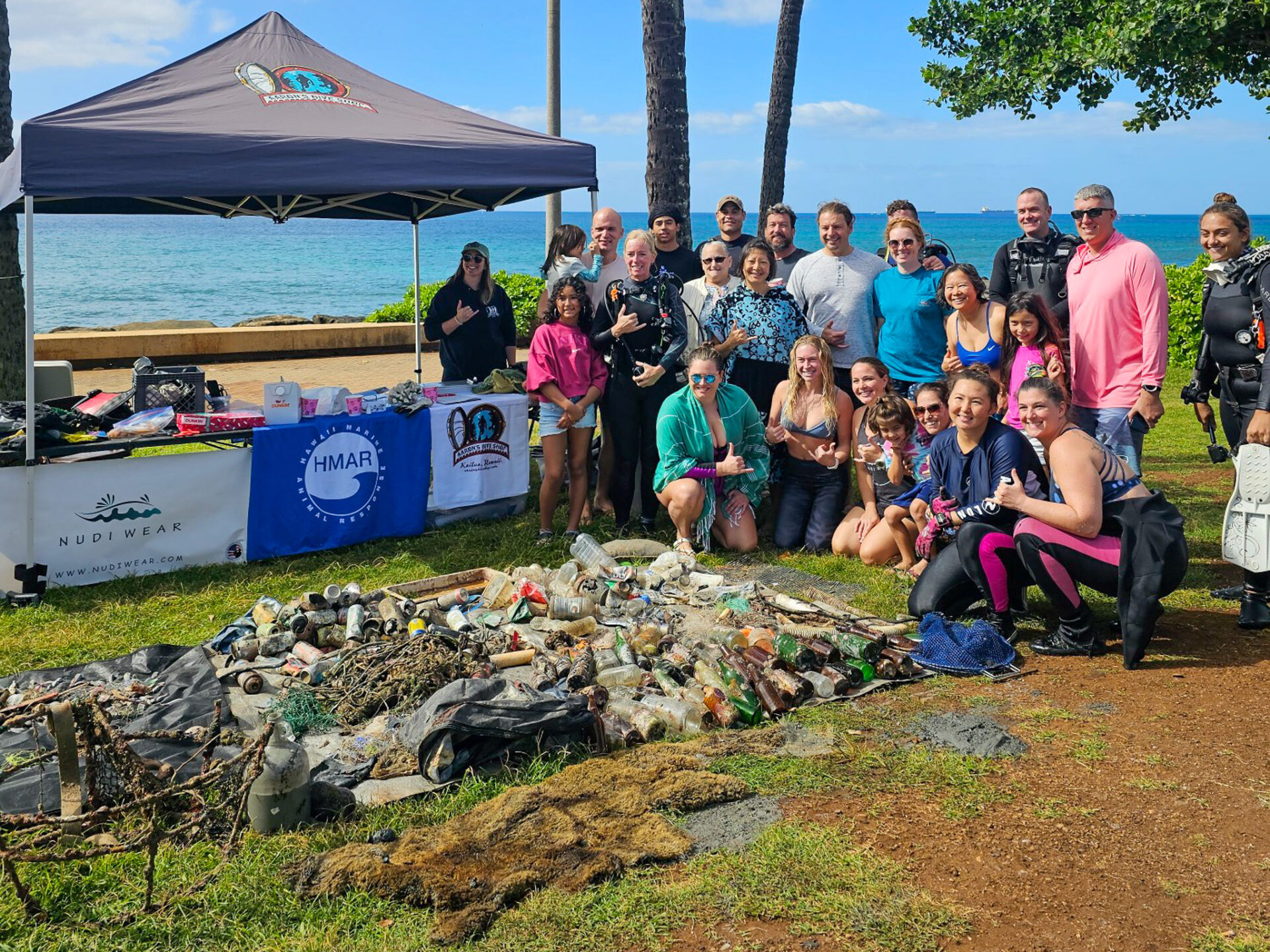Written by Hannah Hazelbaker
You’re a female scuba diver, but you’ve run into a problem: your hair dries out and tangles after diving.
Of all the problems you face (implicit bias at dive shops, occasional creepy boat captains, and wetsuits that, for some reason, are always designed to draw attention to your chest), taking care of your hair can get overlooked, and you end up performing “hair CPR” after a dive trip.
Can you prevent your hair from suffering at the hand of the sun and the sea? Yes! We’re going over how seawater damages hair, how to take care of your hair as a female scuba diver, plus the “why” behind each tip.
Psst… if you’re not a female scuba diver but you care about your hair, these will apply to you too!
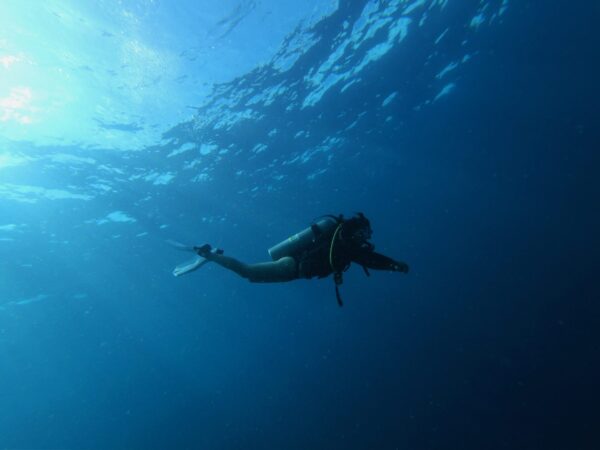
Not a female scuba diver? This information will still apply to you!
How Does Seawater Damage Hair?
Let’s talk about pH. Believe it or not, it’s critical to your hair’s health.
As a female scuba diver, you likely know all about pH. But to summarize: a neutral pH is 7. Anything higher is considered alkaline and anything lower is acidic.
Seawater has a pH of about 8.1. However, your hair likes a pH of 3.67 on the strands and 5.5 at the scalp (source). When your hair is properly acidic, the cuticles contract, sealing in moisture. A more alkaline pH (like seawater) opens up your hair cuticle, letting moisture escape.
This is how seawater damages hair.

Being in an alkaline environment, like the ocean, opens up your hair’s cuticles.
If you’re a female scuba diver in shallow water, then you may be underwater for around 30-40 minutes (or longer depending on your experience). And if you do multiple dives, that’s quite a while for your cuticles to be open.
Your open cuticles allow for a larger exchange of moisture, stripping your hair of sebum (the oil your body produces to keep your luscious locks moist and acidic).
For people who overproduce sebum, this is great news! They likely don’t get dry hair after diving. If this is you, buy yourself a croissant today as a reward.
If you do get parched, straw-like hair after swimming in the sea, below are some dry-hair prevention tips just for you:
How To Take Care of Your (Dive) Hair
1) Hydrate from the inside out
The first way to take care of your hair? Drink water.
Scuba diving, in general, is a study in dehydration.
Firstly, compressed scuba air is incredibly dry since there’s less water vapor inside a tank than outside.
Side note: if you’re a female scuba diver who’s an instructor, you’re likely aware of this. But for those who aren’t: scuba tanks are designed like this to prevent water from condensing and rusting the interior. You exhale more water vapor on scuba than on the surface as a result.
Secondly, diving in seawater means getting salt in your nose and mouth. The salt draws out water.
Thirdly, if it’s a beautiful, sunny day for your dive, that sun is pulling sweat (water) from you.
And finally, if you’re a fan of a post-dive happy hour, alcohol inhibits water from being reabsorbed on its way out of your kidneys. So there goes any residual water your body was hanging onto.
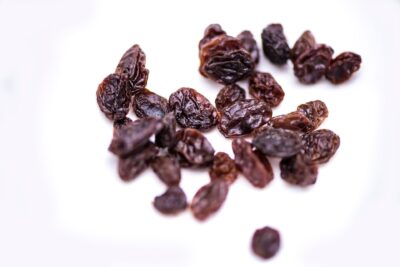
You after four hours of scuba diving.
If you’ve ever done two dives then wondered why you’re so tired, consider the fact you’ve turned into a human raisin over the past four hours.
Conclusion? If you’re a female scuba diver, your default is: DRY. And if you’re dehydrated, your hair will be too. The subsequent tips are all well and good, but drinking enough water before and after a dive is critical.
We all love a good post-dive beer, but consider swapping it for a post-dive lemon water, iced tea, or La Croix (not sponsored— we’re simply fans of how La Croix has mastered the art of almost tasting like fruit).
2) Rinse your hair before diving
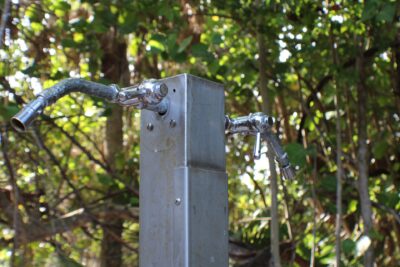
Consider this outdoor shower your new best friend.
Start by getting your hair wet with freshwater before dipping a toe in. Like an over-eager employee on their first day on the job, dry hair is ready to absorb anything thrown its way (anything being water). However, there’s a limit to how much it can absorb. So if the first spritz it gets is freshwater, there will be less space for your hair to suck up the seawater and get damaged later.
A rinse from an outdoor spigot, freshwater hose, or even a spray bottle you bring yourself will do the trick! If you’re diving off a boat, ask beforehand if there will be water for rinsing available.
Adding a little coconut, argan, or jojoba oil after rinsing will help lock in moisture as well. Remember: any product you use will sluff off into the sea, so be sure it’s reef safe.
3) Keep your hair up, but don’t rip it out
It may feel like getting your hair caught in a mask is bad, but getting your hair caught in a tank valve is so much worse. Keeping it up and out of the way prevents snags.
Whether it’s long or short, wet hair is more elastic and easier to break than dry hair (source). This is another way seawater damages hair. Friction, snags, and tangles do more damage when the hair’s wet. So the silicon of a mask rubbing against your hair may cause breakage. Short hair can get damaged just as bad as long hair when it comes to a mask.
This is why a new mask strap is a game changer. The “slap straps” that cover the original strap leave some of the silicon exposed. The silicon is brutal against wet, fragile hair. To really protect your hair as a female scuba diver, get a mask strap to swap out the silicon strap your mask comes with. A strap that has a neoprene back and nylon sides takes the pressure off your hair and reduces damage (ones that use Velcro will snag your hair).
These mask straps here are adjustable, designed to reduce hair damage, and each purchase makes a donation towards ocean conservation.

The “Ariana Grande” position on the left, “Founding Father” on the right.
If you’re female scuba diver with long hair, consider braids, a bun, or a ponytail when diving. Remember to band your hair in a spot that won’t interfere with your mask. We like to call these spots the “Ariana Grande” or “Founding Father” (top of the head or nape of the neck).
If your hair is thin and prone to breakage, don’t twist your hair too tight. Get your hair into position before it gets wet for the day, and be gentle as you take the bands out.
For short hair, consider wearing a dive cap or headband. When it comes to headbands, you want one that will stay in place, dry easily, and not fade over time, like these sustainably made headbands from Nudi Wear.
This article on Empty Nest Diver mentions some more great, sustainable products for keeping your hair up while diving.
4) Rinse your hair after diving
You just finished your last dive. Surely once you get back home you can start taking care of your hair again, right?
Actually, no. If your hair dries with seawater on it, the salts are still pulling out moisture. If the lag between your last dive and washing out that salt is extensive, your hair is still getting damaged by seawater. Give it a rinse when you’re out of the water for good.
Remember that pre-dive rinse you did? Track down that spigot or rinse bucket and go to town!
5) Use a leave-in conditioner

A little bit of olive oil can be a great leave-in conditioner in a pinch.
So you just gave yourself that post-dive rinse. Another way to take care of your hair is by applying a leave-in conditioner. Try using some after you dive, and again after showering later on. This will begin adding the moisture back that you may have lost.
Bring a small bottle in your dive bag or leave one in your car. Keep in mind that any product you put on your body will end up in the sea. This could harm the ecosystem if you’re not careful. Some brands claim to be reef safe but aren’t in reality. One brand that’s 100% reef friendly is Stream-2-Sea.
Oh no! Did you run out of conditioner while traveling? Or did it not fit in your travel bag? Or did the captain on your liveaboard see a banana in your suitcase and throw out your whole bag (yes, this happens)?
Not to fear: a little avocado oil, coconut oil, or olive oil (for curly hair) are great substitutes for a leave-in conditioner in a pinch. You could even condition with eggs (this one you’d need to rinse out after a few minutes).
Remember, you’re a female scuba diver: resourceful, adaptable, and capable of the odd DIY project.
6) Dry your hair before going to bed
So you followed all these steps during a day of diving, and now you’ve showered and are ready for bed!
Slow your roll, cowgirl. Give your hair some time to dry at least a little before sleeping.
If you’re a female scuba diver somewhere warm with high humidity, leaving hair wet for long periods of time can invite in fungus or bacteria growth (scalp issues galore!).
Going to bed with your hair wet also increases the likelihood of split ends or breakage over time (source). If you love crawling into bed after a nice, warm shower (who doesn’t?) opt for a satin or silk pillowcase. Those are gentler on your hair than cotton. For your hair it’s like wearing sweatpants instead of jeans to bed.
A parting tip (Get it? Like parting your hair…?)
Seawater isn’t completely bad for your hair. As long as you’re doing proper maintenance, there are actually a few benefits of seawater. For example, it can help with exfoliation (source).
As a female scuba diver, you’re used to long days at sea, and toughing out the harsh elements for hours at a time. But while you’re out there having fun and making space for other scuba women, remember to take care of yourself at the end of the day.
Have any haircare advice that works for you? Tell us in the comments!




